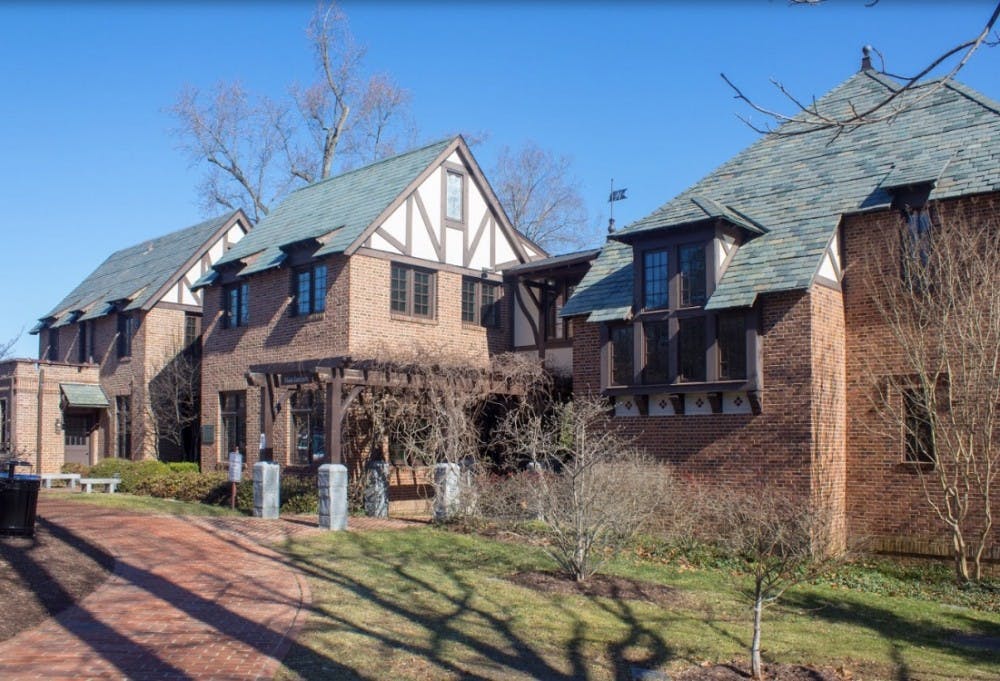Editor's note: The Collegian receives SOBAC funding.
Each spring, eight students and two advisers spend a day hunkered in a room, deep in decision-making. When they emerge, some students are delighted, some are indifferent and others are disappointed.
This day is the final step in the Student Organization Budget and Appropriations Committee allocation process, but the process relies on campus club leaders successfully completing several steps before then.
The University of Richmond center for student development website defines SOBAC as “a joint initiative" between the Richmond College and the Westhampton College student governments “that annually allocates funds to University-wide recognized organizations in order to maximize the quality of student life.”
Two of the eight students on SOBAC serve as co-chairs of the committee: Alice Lu, the WCGA treasurer, and Muhammad Coovadia, Vice President of Finance for RCSGA.
The guidelines for this complicated process could change as the co-chairs review feedback from focus groups they held with club officers on Jan. 16, Coovadia and Lu said in emails.
Megan Wiora, a sophomore and the treasurer of Planned Parenthood Generation Action, attended the final focus group session. Planned Parenthood Generation Action is applying for SOBAC funding for the first time this year, but became an official organization in January of last year, she said.
“I think they’re trying to streamline the process and give us more information about dates and that sort of thing,” Wiora said. “The fact that they don’t really update things a ton, and the dates for the things aren’t always clear and the communication has not been in the past.”
The instructions for filling out the application can be confusing and make the process more difficult for new treasurers, said Christopher Rein, junior and former treasurer of UR Debate Council.
Rein’s club received no funding from SOBAC last year because Rein filled out the application incorrectly, making it seem as though his club had all the funding they needed from other sources, Anthony Crenshaw, associate director of student organizations and leadership development, said. Crenshaw also serves an adviser to SOBAC.
“It’s fair if everyone knows what they’re doing, but not everyone knows what they’re doing,” Rein said. “Especially smaller clubs who have to kind of force someone to be treasurer. It can be confusing."
RCSGA president Abbas Abid said they were still trying to figure out the best way to share information with students.
Enjoy what you're reading?
Signup for our newsletter
“I think the biggest issue is finding a way to make sure communication is as clear as possible,” he said.
Kari Rawls, a senior and the president of Relay for Life, felt differently than Rein. Relay for Life is a nonprofit organization with the American Cancer Society.
Rawls said that the budget spreadsheet had been easy to figure out, but finding the amount her club had received the previous year, a number necessary in order to fill out the spreadsheet, was difficult.
Although the formula for determining a club’s demonstrated need is relatively simple, SOBAC has historically been a complicated process, according to previous Collegian coverage.
In 2011, The Collegian reported that SOBAC had cut 10 to 20 percent from some clubs’ allocations due to missed deadlines, but that clubs could request the full amount in the fall.
In March of 2016, The Collegian reported that The Forum and The Octaves had received no funding from SOBAC due to late applications but that the committee had had 50,000 dollars left to allocate. The Forum publisher said his application had been 20 minutes late.
Chiara Solitario, senior and the president of WCGA, spoke about the difficulty of this being a student-run committee.
“As much as I like it being student-run, I think that it’s really hard for me to watch my friends and my fellow senators have people upset with them because of decisions that they’ve been making,” Solitario said. “That’s a really complicated relationship to have of being frustrated that someone didn’t give you funding but also recognizing that they’re human and they’re honestly just trying to do their job as best as possible.”
For Coovadia, this aspect of the process could be challenging if it weren't for policy already in-place. Coovadia is the former president of Model United Nations and a senior leader of the Muslim Student Association.
“I think we’re all comfortable enough with each other to make sure that we don’t let our friendships get in the way of making sound decisions,” Coovadia said. Regardless, students involved in a club’s leadership step out during deliberations about that club, Crenshaw said.
SOBAC hosted information sessions this week in order to prepare for spring allocations.
The approval vote for the allocations takes place during a joint meeting between WCGA and RCSGA in March, Coovadia said. The vote takes place after SOBAC makes its budget following club presentations. The final vote is open to the public and audience members can ask questions.
Organizations will be notified about SOBAC allocations by May, according to the SOBAC Funding Guidelines handout from the Center for Student Involvement.
Contact news writer Katherine Schulte at katherine.schulte@richmond.edu.
Support independent student media
You can make a tax-deductible donation by clicking the button below, which takes you to our secure PayPal account. The page is set up to receive contributions in whatever amount you designate. We look forward to using the money we raise to further our mission of providing honest and accurate information to students, faculty, staff, alumni and others in the general public.
Donate Now



